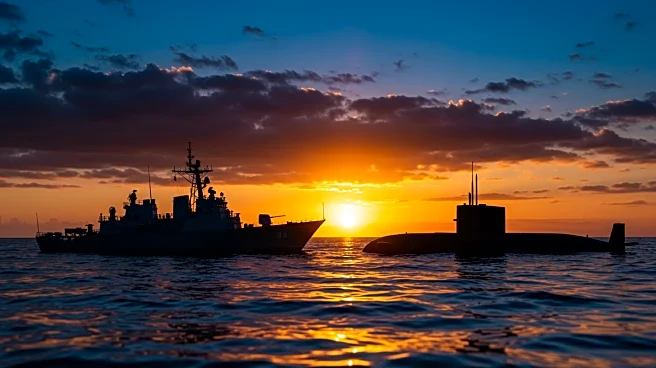What's Happening?
The United Nations Security Council recently hosted a high-level debate on maritime security, where the United States and China exchanged criticisms regarding each other's maritime policies. The meeting, led by Panama's President José Raúl Mulino, focused on the Panama Canal's sovereignty and neutrality. The U.S., represented by Acting Representative Dorothy Shea, expressed concerns over China's influence in the Panama Canal area, citing it as a potential threat to global trade and security. In response, China's Ambassador Fu Cong accused the U.S. of making baseless accusations and emphasized China's respect for Panama's sovereignty. The debate highlighted ongoing tensions between the two nations over maritime security and control.
Why It's Important?
This confrontation at the UN underscores the strategic importance of the Panama Canal in global trade and the geopolitical tensions between the U.S. and China. The U.S. views China's growing influence in the canal area as a threat to its interests and global trade security. Conversely, China accuses the U.S. of using maritime security as a pretext for maintaining control over the canal. These tensions could impact international shipping routes and trade policies, affecting global markets and economies. The debate also reflects broader geopolitical rivalries, with potential implications for international law and maritime governance.
What's Next?
The ongoing dispute may lead to further diplomatic engagements or confrontations at international forums. Both countries might seek to strengthen alliances with other nations to support their positions on maritime security. The U.S. could push for more stringent international regulations to counter China's influence, while China may continue to assert its maritime claims and expand its presence in strategic waterways. The outcome of these tensions could shape future maritime policies and international relations.









